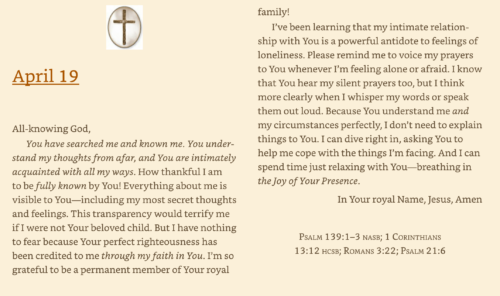A Cry to God
For Ugandan theologian Emmanuel Katongole and peacemaker Chris Rice, lamentation is a profound cry to God. It echoes through the Bible and generations of all who suffer and ask, “How long, O Lord?”:
We are called to learn the anguished cry of lament.
Lament is the cry of Martin Luther King Jr. [1929–1968] from his kitchen table in Montgomery after hearing yet another death threat: “Lord, I’m down here trying to do what’s right…. But Lord, I must confess that I’m weak now, I’m faltering. I’m losing my courage. Now, I am afraid…. I am at the end of my powers. I have nothing left. I’ve come to the point where I can’t face it alone.” [1]
It was not a cry in isolation but rather a tradition King had learned from generations of African American families who were literally torn apart by slavery. The cry of lament had been passed down to him in the music of the Christian spiritual, “Sometimes I feel like a motherless child … a long way from home.”
Lament is the cry of the psalmists of Israel in exile who, feeling abandoned by God, demanded, “Where are you, Lord?” Or the psalmists who were bothered by God’s remarkably bad sense of timing: “Why are you taking so long?” “The poor are being crushed. The wicked are winning. Don’t you see it?” The twin sisters of Psalms are prayers of praise and lament, and they are always walking hand in hand, sometimes singing, sometimes crying.
Lament is not despair. It is not whining. It is not a cry into a void. Lament is a cry directed to God. It is the cry of those who see the truth of the world’s deep wounds and the cost of seeking peace. It is the prayer of those who are deeply disturbed by the way things are. We are enjoined to learn to see and feel what the psalmists see and feel and to join our prayer with theirs. The journey of reconciliation is grounded in the practice of lament.
The prophet Jeremiah writes of Rachel’s lamenting “voice in Ramah” that can only weep at the world’s suffering:
A voice is heard in Ramah,
lamentation and bitter weeping.
Rachel is weeping for her children;
she refuses to be comforted for her children,
because they are no more. (Jeremiah 31:15)
The voice from Ramah refuses to be consoled. These are profound words in a world full of easy ways of consoling ourselves. Rachel’s cry refuses to spiritualize, explain away, ignore or deny the depth and truth of suffering in this world. She rejects soothing words and “can’t we all just get along” sentiments. Her refusal takes seriously the rupture and wounds of the world as well as the deep cost of seeking healing. It is a protest against the world as it is and the brokenness that seems so inevitable. Rachel allows the truth to shake her to the very core. And she is remembered for this.

You have searched me, Lord,
and you know me.
2 You know when I sit and when I rise;
you perceive my thoughts from afar.
3 You discern my going out and my lying down;
you are familiar with all my ways.
12 For now we see only a reflection as in a mirror; then we shall see face to face. Now I know in part; then I shall know fully, even as I am fully known.
22 This righteousness is given through faith in[a] Jesus Christ to all who believe. There is no difference between Jew and Gentile,
Surely you have granted him unending blessings
and made him glad with the joy of your presence.